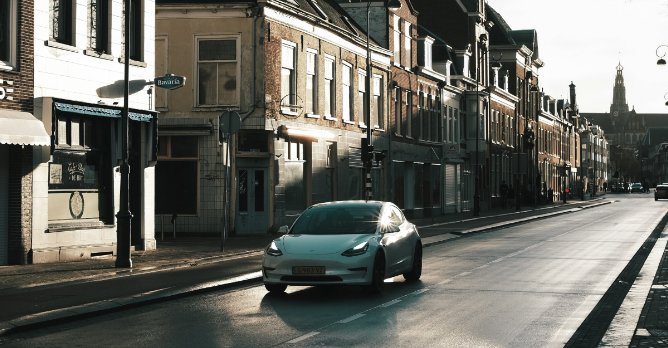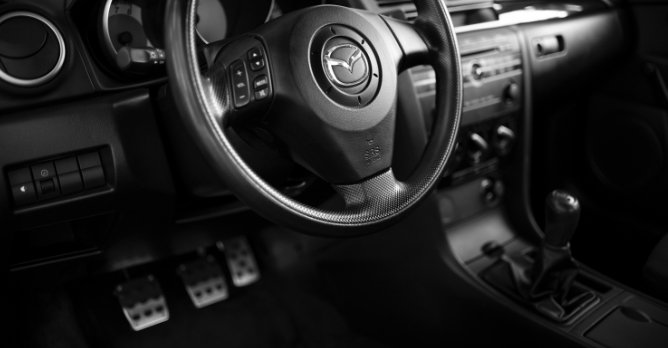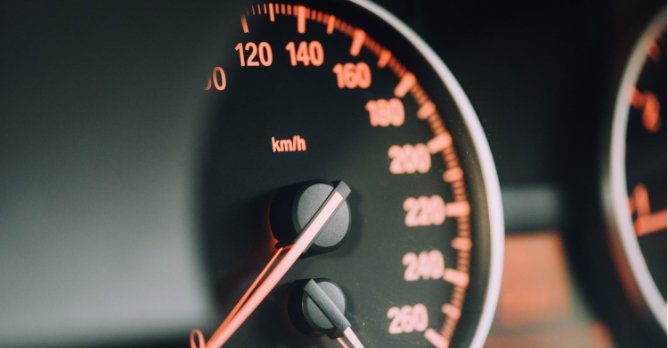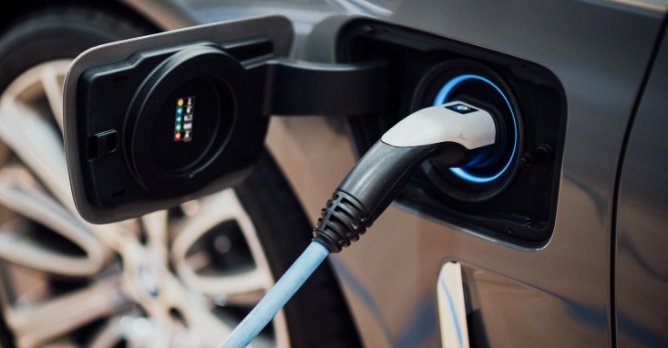Driving an EV vs driving a regular petrol or ICE car
07 Feb 2022|4,964 views
With an all-electric 2040 Singapore approaching, Singaporean drivers will need to adapt to the transition from Internal Combustion Engines (ICE) to Electric Vehicles (EVs).
While a vast majority of us detest any form of change to our daily lives, especially if they are mandatory (GST hikes, circuit breaker, social gathering limitations, just to name a few), we always learn to adapt and overcome.
Here are some differences you should take note of when driving an EV vs driving an ICE car.
One-pedal driving
In an EV, drivers can speed up and slow down with only their right foot on the pedal. This nifty function is called regenerative braking.
Regenerative braking takes the wasted energy build up from a car that's slowing down and uses it to recharge the car's batteries.
Drivers can also tailor the feel of regenerative braking to their preference with different settings. If you set it to the maximum setting, you will feel the pull when you depress the accelerator. Alternatively, you can also turn this function off.
Acceleration
With an EV, you experience faster acceleration compared to regular petrol cars. Due to its electric motors, an EV can provide full torque (the force that drives the car forward from a stationary position). This results in instant acceleration whenever the driver steps on the accelerator.
However, most EVs run on a single-speed gear, which forces car manufacturers to opt for a balanced approach between acceleration and top speed. While an EV might have a lower top speed than other petrol cars, it is still fast enough to eclipse maximum speed limits in Singapore.
Meanwhile, petrol cars have complex internal combustion engines, which takes longer to get engine-generated power to the wheels.

Sgcarmart
Join the Sgcarmart Community
Become a Community member to enjoy exclusive promos & freebies for you and your car!
Join us on TelegramNoise

Noise from vehicles come from three different components - engine/transmission noise, aerodynamics/braking noise and tyre/road surface noise. With EVs, drivers might notice a slight noise at high speeds due to tyre and wind resistance.
At a standstill, an EV produces a sound of at least 40 dB, the same as the soft hum of a refrigerator. On the other hand, fuel cars make sounds ranging from 70 dB to 109 dB, depending on the speed.
Range
Most EVs have a competitive range that can put drivers' minds at ease. If you drive cars like the MINI Cooper Electric, the BMW i3 and the Lexus UX300e, you will be able to drive up to 200km (minimally) on a full charge.
But nothing can beat the Tesla Model 3. It clocked in a whopping range of 567km!
Other notable mentions include the Hyundai Kona Electric at 482km and the Jaguar I-PACE at 470km.
Charging time
Charging takes longer than pumping petrol into a regular car. However. Singapore has an extensive network of chargers available to cater to your timely needs.
Different EVs require different charging times depending on the battery they are running on. With a 22kW fast charger, a Nissan Leaf takes about 90 minutes to reach a full charge.
Most charging venues are situated close to malls and/or food courts, so if you plan your time right, you'll have enough time to run errands or enjoy a meal whilst waiting for your car to charge!
If you live in a landed property, you can have a charger installed in your home to charge your vehicle overnight.
Looking to get an EV? Check out what is currently available in the market right now!

Sgcarmart
Join the Sgcarmart Community
Become a Community member to enjoy exclusive promos & freebies for you and your car!
- Be the first to enjoy exclusive promos & giveaways
- Enjoy membership perks for Sgcarmart services
Here are some related articles that might interest you
EV charging locations in Singapore
Are electric cars cheaper to insure compared to petrol cars in Singapore?
What do these hybrid and electric car indicator lights mean?
5 value-for-money electric cars you can buy right now
EV ownership costs in Singapore - can you afford an electric car?
With an all-electric 2040 Singapore approaching, Singaporean drivers will need to adapt to the transition from Internal Combustion Engines (ICE) to Electric Vehicles (EVs).
While a vast majority of us detest any form of change to our daily lives, especially if they are mandatory (GST hikes, circuit breaker, social gathering limitations, just to name a few), we always learn to adapt and overcome.
Here are some differences you should take note of when driving an EV vs driving an ICE car.
One-pedal driving
In an EV, drivers can speed up and slow down with only their right foot on the pedal. This nifty function is called regenerative braking.
Regenerative braking takes the wasted energy build up from a car that's slowing down and uses it to recharge the car's batteries.
Drivers can also tailor the feel of regenerative braking to their preference with different settings. If you set it to the maximum setting, you will feel the pull when you depress the accelerator. Alternatively, you can also turn this function off.
Acceleration
With an EV, you experience faster acceleration compared to regular petrol cars. Due to its electric motors, an EV can provide full torque (the force that drives the car forward from a stationary position). This results in instant acceleration whenever the driver steps on the accelerator.
However, most EVs run on a single-speed gear, which forces car manufacturers to opt for a balanced approach between acceleration and top speed. While an EV might have a lower top speed than other petrol cars, it is still fast enough to eclipse maximum speed limits in Singapore.
Meanwhile, petrol cars have complex internal combustion engines, which takes longer to get engine-generated power to the wheels.

Sgcarmart
Join the Sgcarmart Community
Become a Community member to enjoy exclusive promos & freebies for you and your car!
Join us on TelegramNoise

Noise from vehicles come from three different components - engine/transmission noise, aerodynamics/braking noise and tyre/road surface noise. With EVs, drivers might notice a slight noise at high speeds due to tyre and wind resistance.
At a standstill, an EV produces a sound of at least 40 dB, the same as the soft hum of a refrigerator. On the other hand, fuel cars make sounds ranging from 70 dB to 109 dB, depending on the speed.
Range
Most EVs have a competitive range that can put drivers' minds at ease. If you drive cars like the MINI Cooper Electric, the BMW i3 and the Lexus UX300e, you will be able to drive up to 200km (minimally) on a full charge.
But nothing can beat the Tesla Model 3. It clocked in a whopping range of 567km!
Other notable mentions include the Hyundai Kona Electric at 482km and the Jaguar I-PACE at 470km.
Charging time
Charging takes longer than pumping petrol into a regular car. However. Singapore has an extensive network of chargers available to cater to your timely needs.
Different EVs require different charging times depending on the battery they are running on. With a 22kW fast charger, a Nissan Leaf takes about 90 minutes to reach a full charge.
Most charging venues are situated close to malls and/or food courts, so if you plan your time right, you'll have enough time to run errands or enjoy a meal whilst waiting for your car to charge!
If you live in a landed property, you can have a charger installed in your home to charge your vehicle overnight.
Looking to get an EV? Check out what is currently available in the market right now!

Sgcarmart
Join the Sgcarmart Community
Become a Community member to enjoy exclusive promos & freebies for you and your car!
- Be the first to enjoy exclusive promos & giveaways
- Enjoy membership perks for Sgcarmart services
Here are some related articles that might interest you
EV charging locations in Singapore
Are electric cars cheaper to insure compared to petrol cars in Singapore?
What do these hybrid and electric car indicator lights mean?
5 value-for-money electric cars you can buy right now
EV ownership costs in Singapore - can you afford an electric car?




















